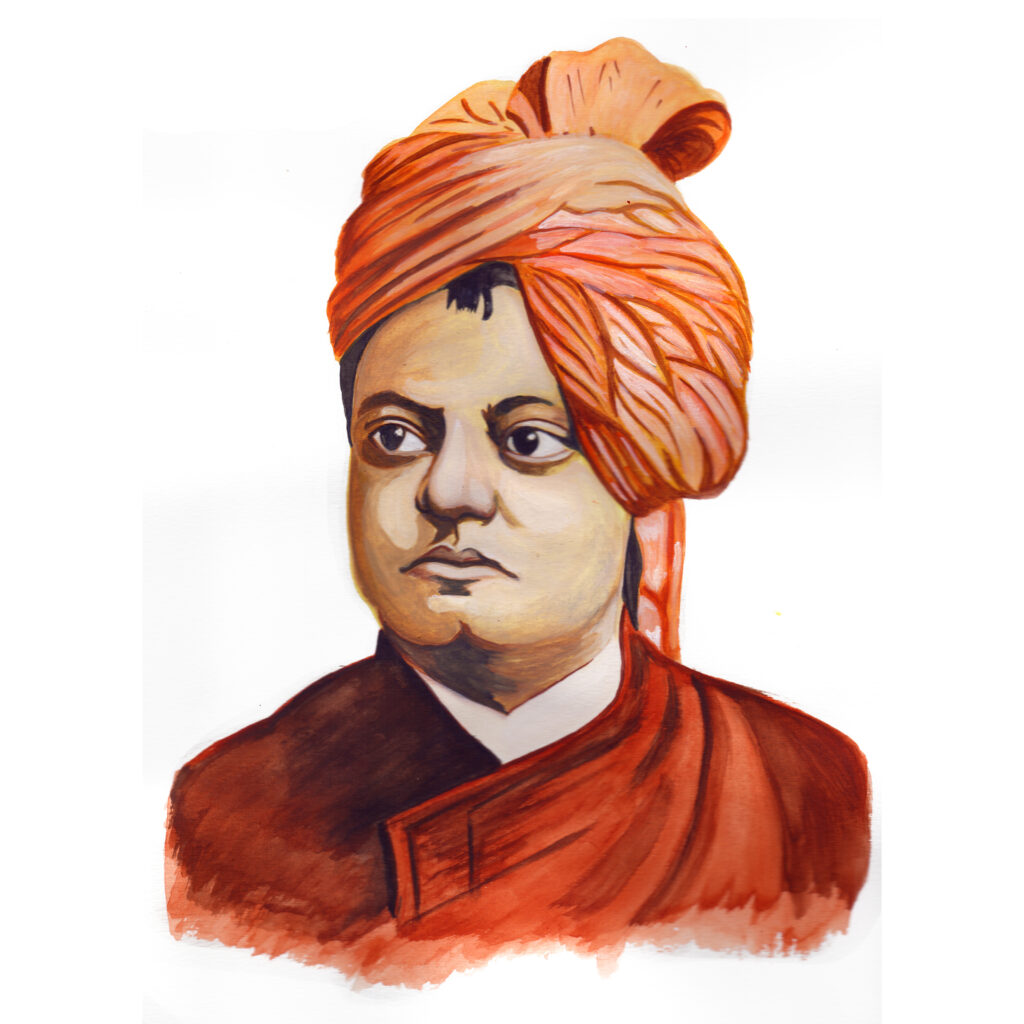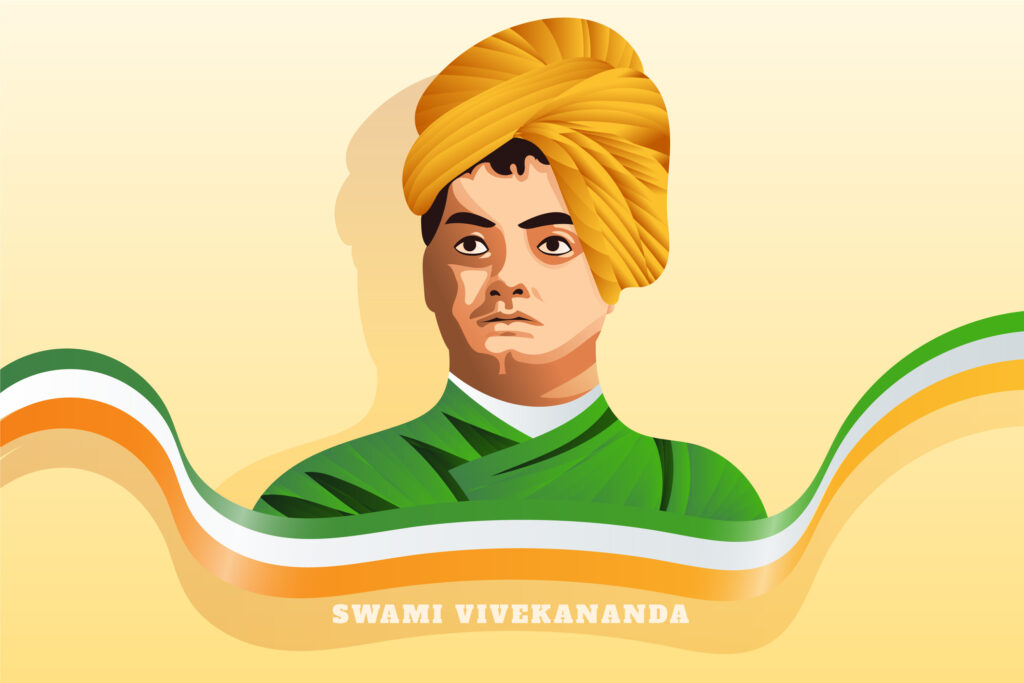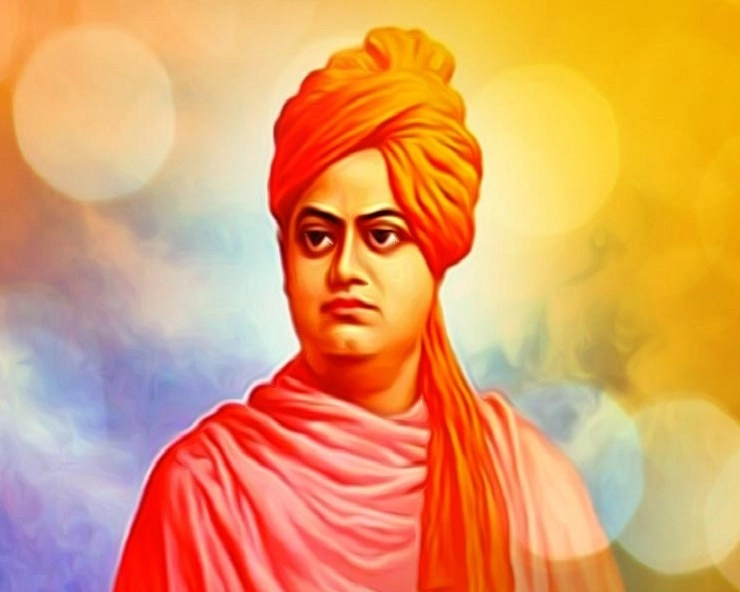Swami Vivekananda, born Narendra Nath Datta on January 12, 1863, was a prominent Indian monk and philosopher who played a key role in introducing Eastern philosophies and spirituality to the western world. He was a disciple of the renowned saint Ramakrishna Paramahansa and was instrumental in the revival of Hinduism in India during the 19th century.
Vivekananda was born into a wealthy Bengali family in Calcutta (now Kolkata), India. From a young age, he exhibited a keen interest in spirituality and religious practices. He was deeply influenced by the teachings of Ramakrishna, who he met at the age of 18. Ramakrishna recognized Vivekananda’s spiritual potential and became his spiritual mentor, guiding him on the path of self-realization.
Vivekananda’s life took a significant turn when he attended the Parliament of the World’s Religions in Chicago in 1893. At the parliament, he delivered a powerful speech advocating for religious tolerance and the universality of all religions. His speech was met with thunderous applause and catapulted him to international fame as a spokesperson for Hinduism and Indian spirituality.

You can read our another post on Devi Subhadra: The Goddess of Love, Compassion, and Devotion
After the parliament, Vivekananda spent nearly four years traveling across the United States and Europe, giving lectures on the spiritual heritage of India and the importance of Vedanta philosophy. He was hailed as a visionary and a beacon of wisdom, attracting a large following wherever he went.
In 1897, Vivekananda returned to India and founded the Ramakrishna Mission, a spiritual and philanthropic organization dedicated to the service of humanity. The mission focused on providing education, healthcare, and other social services to the underprivileged sections of society.
Vivekananda’s teachings emphasized the importance of selfless service, compassion, and the unity of all religions. He believed that true spirituality lies in the realization of the divinity within oneself and in the service of humanity. His message of universal brotherhood and spiritual inclusivity continues to inspire millions of people around the world.

Vivekananda’s legacy is evident in the numerous institutions and organizations that bear his name, including the Ramakrishna Mission, the Vivekananda Vedanta Society, and the Vivekananda International Foundation. His teachings have also influenced prominent figures such as Mahatma Gandhi, Jawaharlal Nehru, and Subhas Chandra Bose.
Despite his profound impact on society, Vivekananda’s life was not without challenges. He faced criticism and opposition from conservative elements within Indian society who viewed his teachings as radical and unorthodox. He also struggled with health issues, including chronic asthma, which ultimately led to his premature death at the age of 39 on July 4, 1902.
Swami Vivekananda’s life and teachings continue to be a source of inspiration for people of all walks of life. His emphasis on the power of the individual to effect positive change in society, his commitment to social service, and his message of universal brotherhood are as relevant today as they were during his time. Vivekananda’s vision of a world based on love, compassion, and mutual respect remains a guiding light for those who seek to make a difference in the world.

Biographie Of Swami Vivekananda
Who was Swami Vivekananda?
Swami Vivekananda was a renowned Indian monk, philosopher, and spiritual teacher who played a key role in introducing Vedanta and Yoga to the Western world. He was a disciple of the Indian mystic Ramakrishna and is best known for his inspiring speeches and promotion of Hindu philosophy and spirituality.
What were the major contributions of Swami Vivekananda?
Swami Vivekananda was instrumental in popularizing Hinduism in the West and spreading the message of Indian culture, spirituality, and philosophy. He emphasized the unity of all religions and the importance of selfless service to humanity. His famous speech at the World’s Parliament of Religions in Chicago in 1893 brought him international fame.
How did Swami Vivekananda’s teachings influence society?
Swami Vivekananda’s teachings continue to inspire millions of people worldwide to lead a purposeful and spiritually fulfilling life. His emphasis on self-realization, tolerance, and service to others has had a lasting impact on the fields of education, social reform, and spirituality.
What are some recommended biographies of Swami Vivekananda?
Some popular biographies of Swami Vivekananda include “Life of Swami Vivekananda” by Eastern and Western Disciples, “Swami Vivekananda: A Biography” by Swami Nikhilananda, and “Eternal Companion: The Life and Teachings of Swami Vivekananda” by Swami Prabhavananda.
How can I learn more about Swami Vivekananda and his teachings?
To learn more about Swami Vivekananda and his teachings, you can explore his writings, speeches, and lectures available in books and online resources. You can also visit the Ramakrishna Math and Ramakrishna Mission centers worldwide, which continue to propagate his message of universal harmony and spiritual enlightenment.
